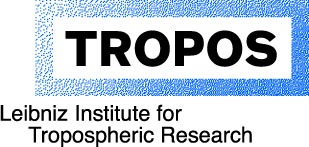NO2 measurements in the city centre of Wuppertal
Peter Wiesen, Ralf Kurtenbach, Anja Klosterköther, Jörg Kleffmann
Institute for Atmospheric and Environmental Research
University of Wuppertal, Gaußstr. 20, D-42097 Wuppertal, Germany
Fine particles and nitrogen dioxide (NO2) are the key species for increasing air quality in Europe. Whereas particulate matter and the exceedance of PM limiting values have attracted considerable public attention since the year 2005, the NO2 problem attracted public interest in Germany only after so-called “Diesel Gate” in September 2015 although EU limiting values entered into force already in January 2010.
The reduction of nitrogen oxide emissions has been historically one of the key objectives for improving air quality in Europe. NOx emissions have started to decrease considerably since the mid eighties of the last century in many European areas. However, nitrogen dioxide is still a serious problem in many German cities. In the year 2017 almost 50% of the roadside measurement stations reported an exceedance of the annual limit of 40 µg/m3.
Since road traffic and particularly Diesel vehicles are still the major source of nitrogen oxides in Germany, it is currently discussed to ban Diesel vehicles from city centres to force NO2 concentrations below the limit value.
However, there is also a debate in the public whether roadside measurement stations were positioned in Germany in agreement with the EU guidelines for monitoring stations.
We report measurements in the city centre of Wuppertal at the measurement station “Gathe” of the national monitoring network during spring 2018. During the measurement period a pronounced impact of public busses on the NO2 concentrations were observed, when public services were on strike in March and April 2018.
The results will be discussed in comparison with the corresponding EU Guidelines.
